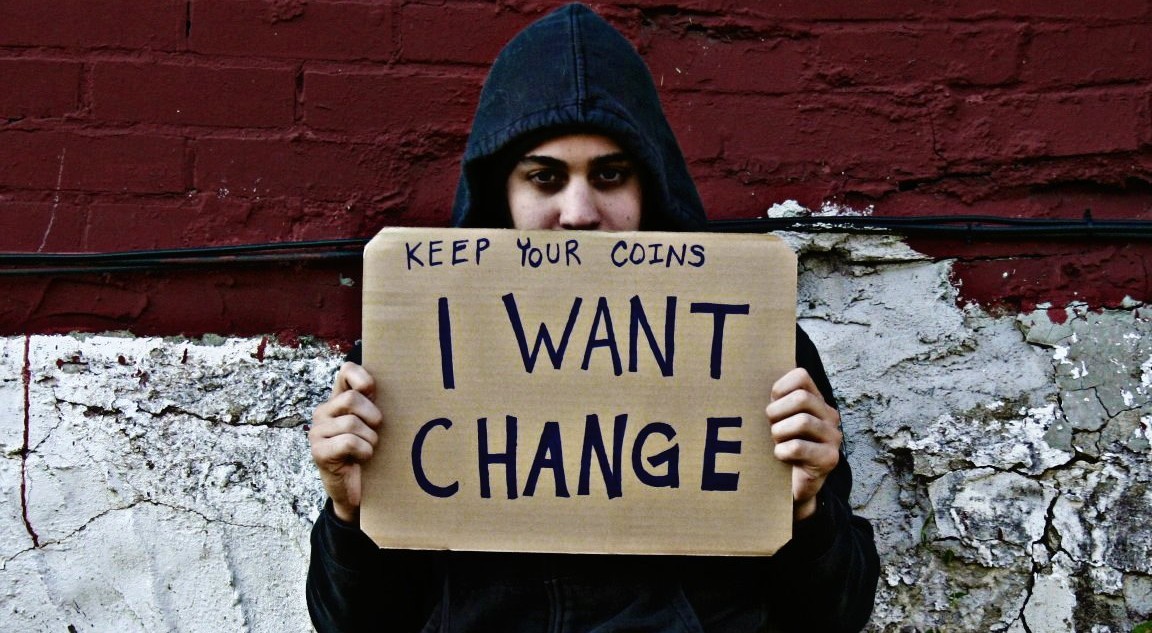Change.
That was a big word a few years ago, wasn’t it?
The word rang through the country, shook us all up, got us all excited, or got some of the others angry.
Since then, we’ve all been a bit disappointed with how that all worked out.
But that dream in this country, that at some point, some big change, some huge sweeping movement, will come and change everything still pervades.
We’ve got those Occupy folks. The people who want (can we use past tense with them yet?) to fight for the 99% and liberate us from the 1%.
Then there are those Tea Partiers, right? They do something, don’t they?
And then there’s the push for gay marriage, and controlling guns, and I think someone wants to go to war with Iran, and I dunno, I guess a few other things.
Point is, people want to shake things up. They want to tear things down, then bring them back up to the way they imagine them.
And for each one of these movements, there’s a leader (or leaders). The kind of person who stands in front of the crowd and yells out, “Change!”
Or, “Revolution!”
Or, “Hope!”
And other such inspiring, big, huge, enormous words.
These leaders are on the web, in print, and on TV. Others are inspired by them. Moved even. They cry when they see their leaders step on stage. They share all their Facebook updates, consume everything they say, soaking up their every line.
You know what I’m talking about. Whether it’s a world leader like Obama or someone leading chants down on the streets of Occupy, to be a hero in this country means one thing: you fight for big changes.
These leaders are seen as projections of their own self-image: revolutionaries who are fighting for the good of mankind. People can’t help but be inspired by them. They imagine that these people are following the tradition of people like Martin Luther King Jr. or Ghandi. Freedom fighters.
But here’s the thing: these great leaders, these people everyone love to cry over, that we all admire…
They’re the last people we should be following.
Because those people, however much their cause is good or justified… if their whole life revolves around big things, if all they care about is creating a revolution, if that’s their entire identity…
Then you can’t trust them.
Let me repeat that…
You cannot trust a person who only cares about the “big things”.
Because a person who only cares about such things could be a good person or a bad person. But you’ll never know.
Because a person does not automatically become good if they fight for good. A person like that could be pure evil, doing it just for the attention. They could be manipulating circumstances for their own benefit. You don’t know that person’s inner life, all you see is their big fights.
In other words, fighting for something objectively good does not automatically make someone actually good. And a leader who is fighting for these things could very well be a scoundrel.
Because, at the end of the day, the big things in this world need to be changed, but they only need to be changed for something deeper, something truer:
The small life. The life underneath the surface. The life that we don’t advertise.
How I treat my wife. How much of my life is devoted to spirituality. How hard I work to improve myself every day.
Those are the ways I should be judged.
Those things are the only things in life that really matter.
Everything else is… something else.
All this revolutionizing and this changing, those are just the burdens we have to deal with because the world isn’t perfect. They’re necessary, but fighting for them doesn’t mean squat unless we’re fighting for them because they’re a means to making our smaller lives easier so we can do more real good.
Civil rights don’t mean anything in and of themselves unless the people who are given those rights do something good with them.
A revolution is a waste of time if it isn’t used to facilitate our own inner growth and the growth of those around us.
And if all someone talks about, writes about, is the means, (that is, those huge revolutions and changes) then there’s a damn good chance they don’t care about the ends.
And that’s why you can’t trust those people. Because while it might be possible they’re doing things for the ends, you’ll never know.
And let’s all be honest with ourselves here: they probably aren’t or we would know.
The only person I would trust with those big answers, those big ideas of revolution would be someone that focuses on the miniscule. The tiny. The microscopic.
The truly great Jewish leaders, from Avraham to Moshe to the Lubavitcher Rebbe, have always reminded us that changing the world start with changing ourselves. Turning ourselves inside out, and being good people to those around us. Not only that, they were living examples of that ideal. That’s why they were true leaders.
And, of course, Avraham, Moshe, the Rebbe… these leaders changed the world in ways we can’t even imagine.
Not only that, their changes have lasted, and not fallen apart like so many other revolutions.
Because at the end of the day, a revolution that isn’t rooted in the microscopic is just hot air, and a leader who only cares about the large things in life isn’t really a leader.
But if our revolutions are rooted in the small… if our leaders are in touch with the microscopic… well… then we’ll really change the world.

Leave a Reply